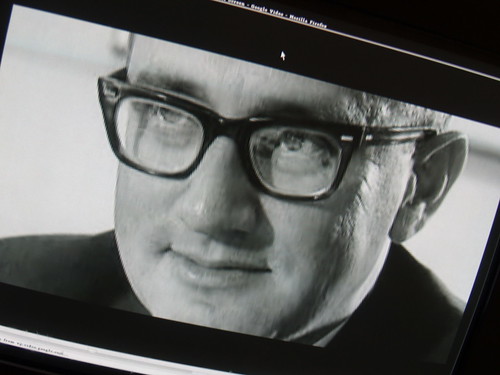 Independent | Not since the inauguration of president John F Kennedy half a century ago has a new administration come into office with such a reservoir of expectations. It is unprecedented that all the principal actors on the world stage are avowing their desire to undertake the transformations imposed on them by the world crisis in collaboration with the United States.
Independent | Not since the inauguration of president John F Kennedy half a century ago has a new administration come into office with such a reservoir of expectations. It is unprecedented that all the principal actors on the world stage are avowing their desire to undertake the transformations imposed on them by the world crisis in collaboration with the United States.The extraordinary impact of the President-elect on the imagination of humanity is an important element in shaping a new world order. But it defines an opportunity, not a policy. The ultimate challenge is to shape the common concern of most countries and all major ones regarding the economic crisis, together with a common fear of jihadist terrorism, into a strategy reinforced by the realisation that the new issues like proliferation, energy and climate change permit no national or regional solution.
The financial and political crises are, in fact, closely related partly because, during the period of economic exuberance, a gap had opened up between the economic and the political organisation of the world. The economic world has been globalised. Its institutions have a global reach and have operated by maxims that assumed a self-regulating global market. The financial collapse exposed the mirage. It made evident the absence of global institutions to cushion the shock and to reverse the trend. Inevitably, when the affected publics turned to their political institutions, these were driven principally by domestic politics, not considerations of world order. Every major country has attempted to solve its immediate problems essentially on its own and to defer common action to a later, less crisis-driven point.
So-called rescue packages have emerged on a piecemeal national basis, generally by substituting seemingly unlimited governmental credit for the domestic credit that produced the debacle in the first place, so far without achieving more than stemming incipient panic. International order will not come about either in the political or economic field until there emerge general rules toward which countries can orient themselves.
In the end, the political and economic systems can be harmonised in only one of two ways: by creating an international political regulatory system with the same reach as that of the economic world; or by shrinking the economic units to a size manageable by existing political structures, which is likely to lead to a new mercantilism, perhaps of regional units. A new Bretton Woods kind of global agreement is by far the preferable outcome.


0 comments:
Post a Comment